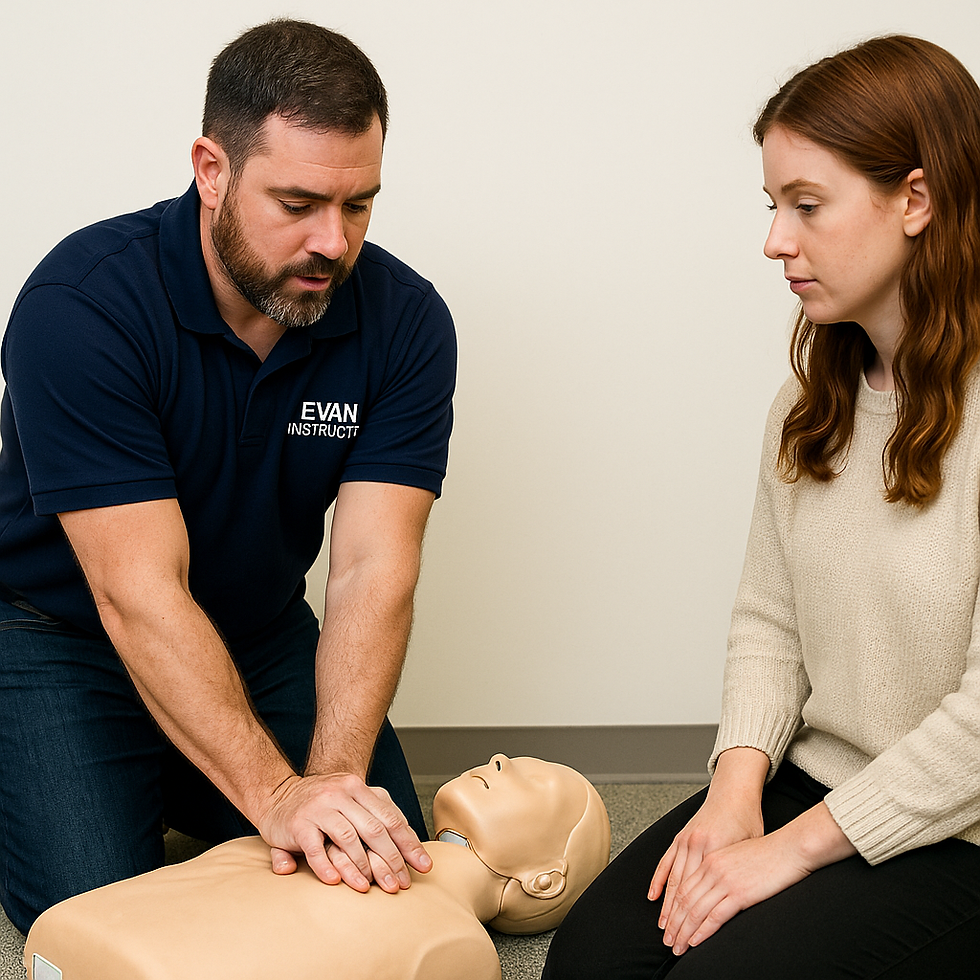How Often Should First Aid and CPR Certificates Be Renewed in Australia?
- Ready Set Rescue WA

- Jul 28
- 3 min read

Maintaining up-to-date first aid and CPR qualifications is essential not only for workplace safety but also for legal compliance across Australia. Nationally recognised units such as HLTAID009 – Provide Cardiopulmonary Resuscitation and HLTAID011 – Provide First Aid have specific renewal timeframes that are enforced through regulatory guidance. Employers and individuals alike must ensure certifications are current to meet duty-of-care obligations and support effective emergency response.
This article outlines the renewal intervals, legal frameworks, and practical recommendations for keeping first aid and CPR qualifications valid in Australian workplaces, with a focus on Perth, Western Australia.
Recommended Renewal Intervals
HLTAID009 – Provide Cardiopulmonary Resuscitation (CPR)
Renewal Frequency: Every 12 months
Guideline Authority: Australian Resuscitation Council (ARC)
CPR is a skill that deteriorates quickly without practice. Studies show that compressions, breathing technique, and AED use all require regular refreshers to remain effective in real emergencies. The ARC explicitly recommends that individuals renew their CPR training every 12 months to ensure competency.
HLTAID011 – Provide First Aid
Renewal Frequency: Every 3 years
Guideline Authority: Safe Work Australia and Industry Standards
HLTAID011 includes CPR (HLTAID009) as a component, but the overall course covers broader scenarios such as bleeding, burns, fractures, asthma, anaphylaxis, and unconsciousness. While the CPR component should be updated yearly, the full first aid certificate must be renewed at least every three years to retain its validity.
Legal Obligations for Workplaces in Western Australia
Under the Work Health and Safety (WHS) Act and the Code of Practice: First Aid in the Workplace, employers must provide appropriate first aid training for staff. This includes ensuring certificates remain valid and renewed within recommended timeframes.
Minimum first aider ratios include:
One first aider per 50 workers in low-risk workplaces
One first aider per 25 workers in high-risk environments
Higher ratios in remote or isolated workplaces
Failure to maintain valid qualifications could lead to non-compliance penalties, especially in the event of an incident where outdated training may result in an inadequate response.
Consequences of Letting Certification Lapse
Allowing first aid or CPR certificates to expire can have serious implications:
Legal risk: Non-compliance with WHS obligations can expose businesses to prosecution.
Insurance liability: Claims may be denied if no certified first aid response was available.
Emergency response failure: Delays in critical care can result in poorer outcomes or preventable fatalities.
Auditing issues: Certification records are commonly requested during internal or external audits.
To avoid these issues, businesses should proactively manage training schedules and renewals.
Best Practices for Managing Certification Renewals
Employers should implement the following strategies to stay compliant and ready:
Maintain a centralised register of first aiders and certificate expiry dates.
Schedule CPR refreshers annually and full HLTAID011 recertification every three years.
Use a learning management system (LMS) or calendar reminders to notify staff of upcoming expiry.
Deliver training onsite to maximise attendance and reduce downtime.
Choose a reputable RTO to ensure training meets national standards.
At Ready Set Rescue WA, we support Perth businesses with a digital training management system and flexible onsite delivery. Our trainers are current emergency responders with extensive real-world experience.
Why Annual CPR Renewal Is Critical
CPR performance degrades significantly within months of training. A study published by the National Centre for Biotechnology Information (NCBI) found that retention of correct compression technique and rhythm falls dramatically without ongoing practice. In life-threatening situations, a confident and immediate response is crucial.
By refreshing CPR skills annually, employees remain equipped to respond decisively and with minimal hesitation, especially when automated external defibrillators (AEDs) are involved.
Frequently Asked Questions
Is it mandatory to renew CPR every 12 months?While not legally mandated, most workplaces, regulators, and industry codes of practice strongly recommend annual renewal. Many organisations enforce it as internal policy.
Do I need to retake the full HLTAID011 course to renew CPR?No. HLTAID009 – Provide CPR can be completed as a stand-alone refresher. However, it is included within HLTAID011 if both are renewed together.
Can onsite refresher training be arranged for small teams?Yes. At Ready Set Rescue WA, we conduct onsite group sessions for as few as seven participants. We provide all equipment and issue statements of attainment through our accredited RTO partner.
Conclusion
Renewing first aid and CPR certifications is not just a compliance task. It is a commitment to safety and preparedness. Whether you are a business owner, safety officer, or employee in Perth, staying current with HLTAID009 and HLTAID011 requirements ensures you are ready to respond when it matters most.
If your team is due for refresher training, contact Ready Set Rescue WA to schedule onsite delivery at your workplace. We make compliance simple, efficient, and tailored to your operational needs.




Comments